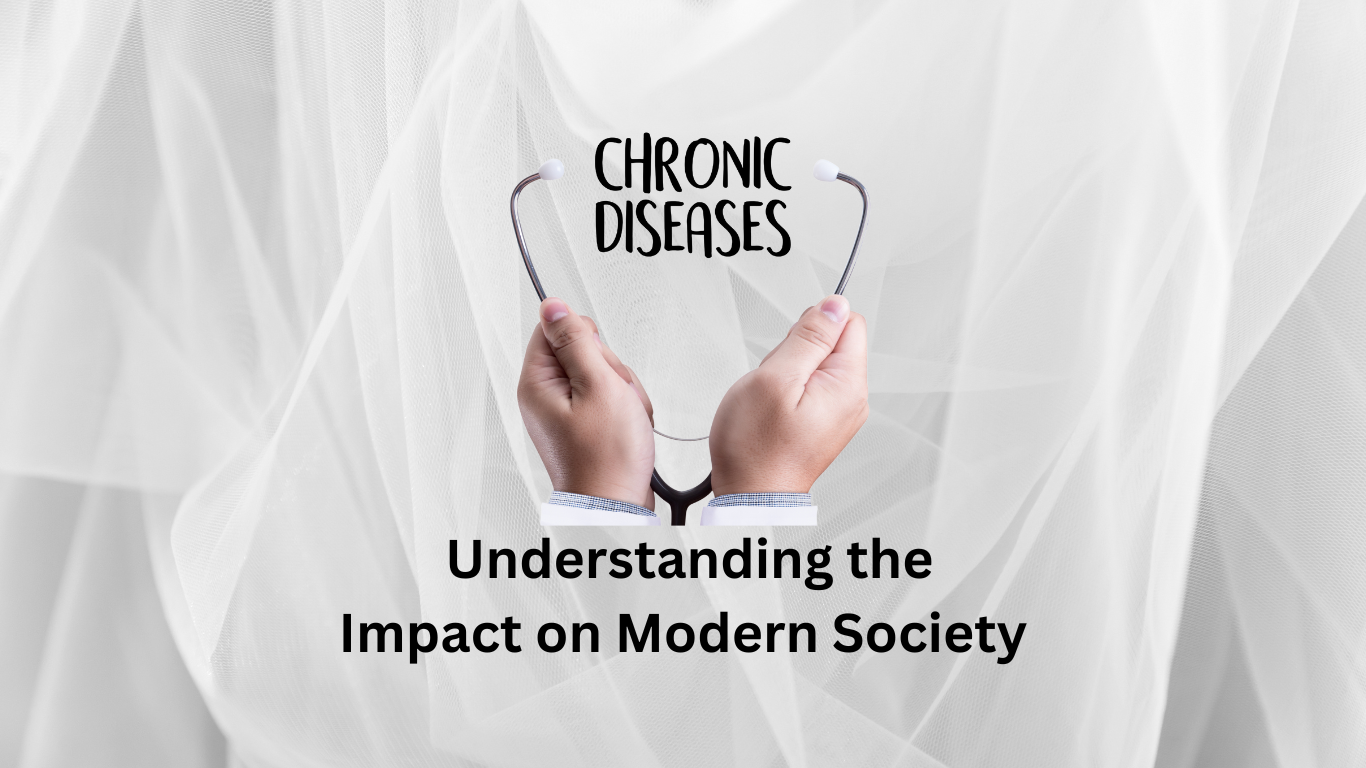Introduction
In this comprehensive article, we delve into the intricate world of chronic diseases and their significant impact on modern society. Chronic diseases have become a pressing concern for individuals, families, and communities worldwide. As a reputable source for valuable information, we aim to provide a thorough analysis of these conditions, offering insights that will outrank existing articles and aid readers in understanding the gravity of the matter.
What Are Chronic Diseases?
Chronic diseases refer to long-term health conditions that persist over an extended period, typically lasting for three months or more. These ailments often progress slowly and can significantly impact a person’s quality of life. Some common examples include diabetes, cardiovascular diseases, chronic respiratory disorders, cancer, and arthritis.
The Prevalence of Chronic Diseases
Chronic diseases have reached epidemic proportions worldwide, affecting millions of people across various age groups. The World Health Organization (WHO) estimates that chronic diseases are responsible for approximately 71% of all global deaths. Furthermore, these diseases account for a staggering 86% of deaths in high-income countries and 70% of deaths in low and middle-income countries.
Factors Contributing to the Rise of Chronic Diseases
Several interconnected factors contribute to the escalating prevalence of chronic diseases:
1. Unhealthy Lifestyles
Modern lifestyles, characterized by poor dietary habits, sedentary behavior, and lack of physical activity, play a pivotal role in the development of chronic diseases. The consumption of processed foods, high sugar, and unhealthy fats contributes to obesity, diabetes, and heart disease.
2. Aging Population
The world’s aging population is another significant factor. As life expectancy increases due to medical advancements, the elderly are more susceptible to chronic conditions, leading to a higher burden on healthcare systems.
3. Environmental Factors
Environmental factors, such as air pollution, exposure to toxins, and climate change, can exacerbate chronic conditions. For instance, respiratory diseases may worsen due to poor air quality.
4. Genetic Predisposition
Genetics also play a role, as certain individuals may have a higher susceptibility to certain chronic diseases due to inherited traits.
The Impact on Healthcare Systems
Chronic diseases place an immense strain on healthcare systems globally. The cost of treating chronic conditions is substantial, accounting for a significant portion of healthcare expenditures. Moreover, these diseases require ongoing medical attention, leading to overcrowding in hospitals and clinics.
Psychological and Social Impact
Chronic diseases not only affect physical health but also have profound psychological and social consequences. Individuals battling chronic conditions may experience anxiety, depression, and reduced quality of life. Furthermore, the burden on caregivers and families can be emotionally challenging.
Prevention and Management
Preventive measures are crucial in curbing the prevalence of chronic diseases. Implementing educational programs to promote healthy lifestyles, encouraging regular health check-ups, and early detection are vital steps.
1. Emphasizing Healthy Habits
Promoting a balanced diet, regular exercise, and stress management can significantly reduce the risk of chronic diseases. Encouraging individuals to adopt healthier habits can lead to long-term benefits.
2. Screening and Early Detection
Routine screening for common chronic diseases can facilitate early detection and timely intervention, improving the chances of successful management.
3. Effective Treatment Plans
Collaboration between healthcare providers and patients is crucial in developing effective treatment plans. Personalized care and adherence to medical advice can positively impact disease management.
Conclusion
Chronic diseases represent a formidable challenge in today’s world, affecting millions of lives and burdening healthcare systems globally. By understanding the factors contributing to their rise and implementing preventive measures, we can strive towards a healthier society. As we’ve explored in this article, the impact of chronic diseases goes beyond physical health, affecting individuals emotionally and socially.
In conclusion, tackling chronic diseases requires a comprehensive approach involving individuals, communities, and healthcare professionals. By sharing this valuable information, we aim to create awareness and inspire positive changes in lifestyles, ultimately reducing the burden of chronic diseases on society.

[…] Short-term AI Investments: Analyze the pros and cons of long-term and short-term AI investments. Understand how investment horizon impacts decision-making and potential returns. LSI Keywords: AI investment horizon, AI short-term gains. […]
[…] Understand the psychological impact of AI investments on investors and how emotions influence decision-making. […]
[…] in competitive markets. He highlights the significance of networking, continuous learning, and understanding clients’ needs to deliver impactful consulting […]